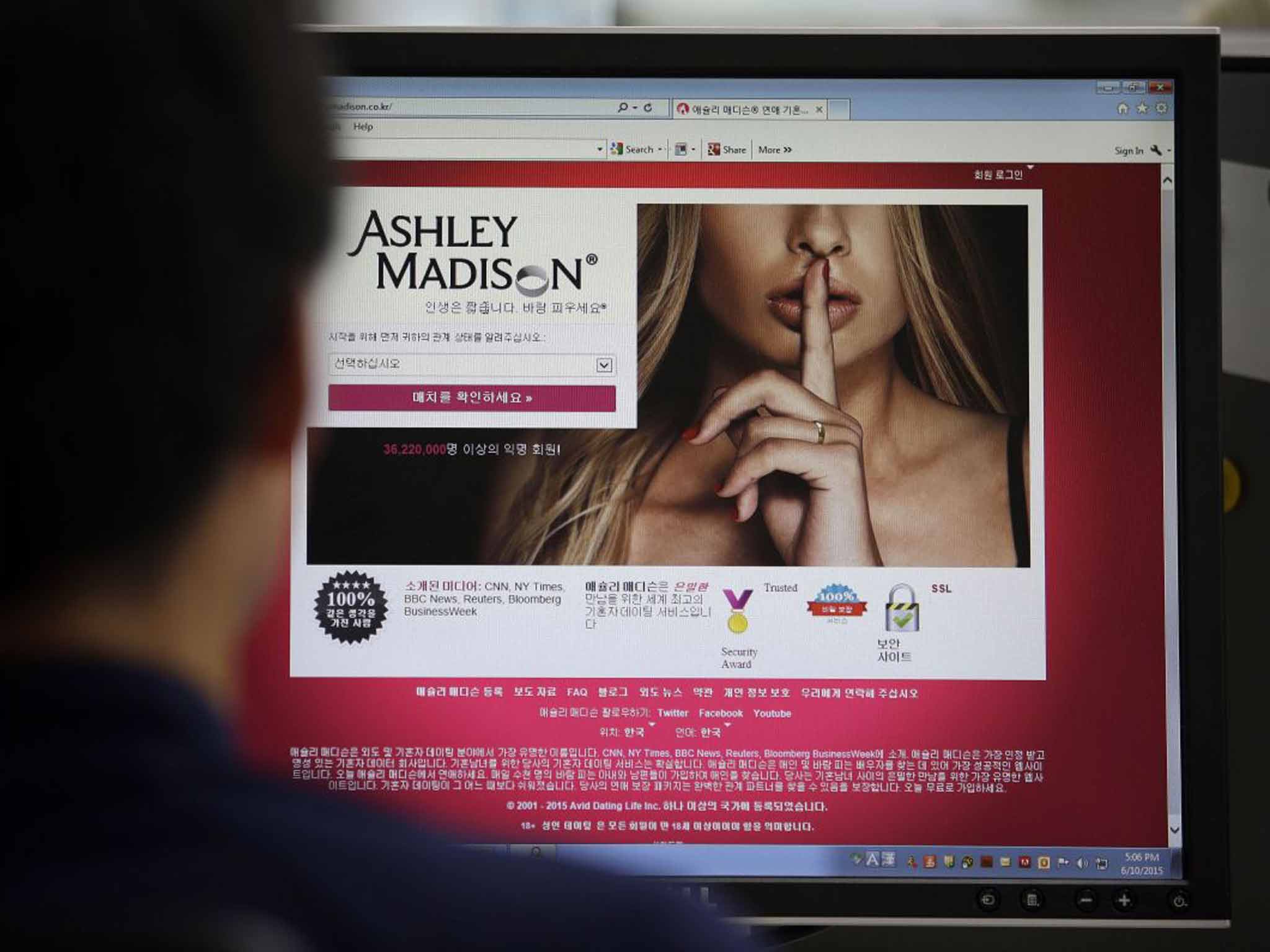Ashley Madison hack: Cyber vandalism isn't only a problem for cheating spouses...
The case has yet again demonstrated the fragility of online security

Your support helps us to tell the story
From reproductive rights to climate change to Big Tech, The Independent is on the ground when the story is developing. Whether it's investigating the financials of Elon Musk's pro-Trump PAC or producing our latest documentary, 'The A Word', which shines a light on the American women fighting for reproductive rights, we know how important it is to parse out the facts from the messaging.
At such a critical moment in US history, we need reporters on the ground. Your donation allows us to keep sending journalists to speak to both sides of the story.
The Independent is trusted by Americans across the entire political spectrum. And unlike many other quality news outlets, we choose not to lock Americans out of our reporting and analysis with paywalls. We believe quality journalism should be available to everyone, paid for by those who can afford it.
Your support makes all the difference.In her 2011 book about Twitter, The Independent's TV critic Grace Dent outlined a grim potential scenario where private information was made public. "If everyone's direct-message box was accidentally posted on the public timeline," she wrote, "there would be rioting in international cities by lunchtime. Most of this would be warring couples chucking bin-bags of clothes at each other."
It was funny because it was true, but we assume it could never happen to us because it would be unfair. There's a belief that information can be secured simply by crossing fingers, but breaches are occurring with alarming frequency. Embarrassing emails are forwarded, personal details leak out, rings are run around security measures. Information is safe only up to the point when it isn't, and then we have to deal with the fall-out.
Earlier this week, a "leading extra-marital affairs website" was hacked and the details of an alleged 37 million customers were swiped. Ashley Madison is still online and still advises us to "have an affair" because "life is short". But its users are now living with the threat of exposure by a group of hackers calling themselves The Impact Team. They say that they're protesting about a feature known as "Full Delete"; if you pay Ashley Madison $19 (£12), your details are supposed to be scrubbed completely from its servers, but the hackers claim no such deletion takes place. So they've decided to stand up for the privacy of millions of people by threatening them with a far more serious breach of privacy that could ruin their lives. ALM, the owners of Ashley Madison, have issued a statement saying: "The current business world has proven to be one in which no company's online assets are safe from cyber-vandalism."
Think about that for a moment. Think how differently you might use the internet if that sentence were written on a Post-it note and stuck permanently to your screen.
At the time of writing, The Impact Team hasn't carried out its threat, but even the prospect of the big reveal has prompted one newspaper to issue the extraordinary advice to members to "take pre-emptive action and tell your other half… in anticipation that the leak will eventually become public". No one emerges with much credit from this ugly story of emotional blackmail – ALM doesn't, the thrill-seekers wracked with guilt don't, and nor do the hackers who disingenuously claim to be acting in the public interest. But equally ugly is the inevitable wave of schadenfreude. "I secretly crave the scandalous headlines," wrote one commenter, gleefully awaiting the leaking of names of celebrities who might have been using the service.
Unfaithful spouses apparently had this coming. But we all have information stored on computers connected to the internet that we don't want revealed, information secured by encryption methods we don't fully understand, information that may be sought by hackers who then decide what moral codes we've breached and what punishment to inflict upon us.
As Jon Ronson says in a recent TED talk about online shaming: "The hunt is on for people's shameful secrets." Privacy advocates have been saying this for years and have frequently been dismissed as over-anxious and paranoid, but the Ashley Madison case has yet again demonstrated the fragility of online security.
This time, they've come for the philanderers. Who'll be sticking up for us when it's our turn?
Join our commenting forum
Join thought-provoking conversations, follow other Independent readers and see their replies
Comments